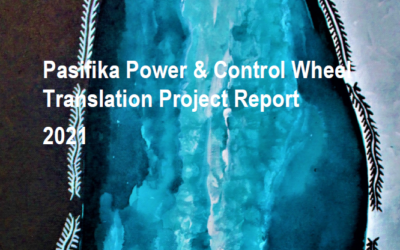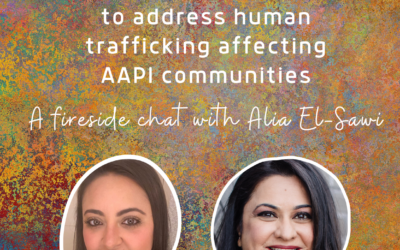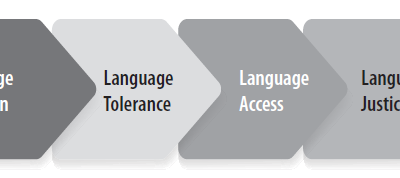A Language Justice approach allows agencies to engage diverse organizations, local communities, stakeholders, and victims/survivors in anti-violence initiatives, placing everyone on equal footing through interpretation, translation, and other strategies for equal communication
Related Resources
Zoom Interpreting and Closed Captioning Guide for Service Providers, 2022
Tips and resources on Zoom interpreting and closed captioning for service providers.
Pasifika Power & Control Wheel Translation Project, 2021
This project aimed to translate and develop educational resources and tools on GBV in indigenous Pasifika languages. The project aims to empower individuals, families, community-based and system responders, allied professionals, and the community-at-large with culturally responsive resources to address and prevent GBV in Pasifika communities. Resources include project report and glossaries and tools for Samoan, Chuukese, and Native Hawaiian communities.
PowerfuL Partnerships: Collaborative efforts to address human trafficking affecting AAPI communities, 2022
Alia El-Sawi, a Victim Assistance Specialist at the Department of Homeland Security, joins API-GBV for our first “fireside chat” hosted by our Executive Director Monica Khant. Drawing also from her previous role as the Anti-Human Trafficking Coordinator at a community-based organization that provides culturally-responsive services for survivors of human trafficking, Alia will discuss what can be done to increase coordination and communication between DHS agents and community-based advocates in responding to trafficking situations and minimizing trauma for survivors. The conversation will also illuminate challenges to current anti-trafficking efforts, including fear of reporting, human-trafficking’s concurrence with other forms of gender-based violence, and the abundant stereotypes around the trafficking of AAPI individuals.
Language Justice Principles for Everyday Practice and During COVID-19
What is language justice, what are tips for lawyers to practice it, and why is this especially important during the COVID-19 pandemic? This article answers these commonly asked questions and more.
Language Justice in Legal Services, 2019
Published by Management Information Exchange Journal
This article positions language justice as a critical
part of effective and inclusive legal services, and introduces a framework for assessing and strengthening practices for servicing individuals who do not communicate in English as their dominant language.
Infographics: Trauma-Informed Advocacy for Survivors of Human Trafficking at Points of Contact, 2020
What survivors of human trafficking and the advocates who work with them have taught us about practicing trauma-informed advocacy at various points of contact. A set of shareable infographics
Trafficking: Trauma & Trauma-Informed Collaboration & Advocacy, 2018
Building from what trafficking survivors have taught us, this webinar discusses how to identify survivors, how past experience of help-seeking can influence current attempts, and the importance of trauma-informed care at different points of contact with survivors such as raids, arrest, and at shelters.
Considerations and Recommendations on Trauma-Informed Advocacy for Trafficking Survivors, 2017
This TA Brief addresses the complexity of advocacy for adult and minor survivors of trafficking. Topics include: Definitions, Analysis/Root Causes, Trauma-Informed Advocacy, Endangerment & Confidentiality, and Considerations & Recommendations at Points of Contact — raids, arrest, custody and release, legal processes, shelters, and health and mental health systems.
Center for Innovation and Resources, Inc.
2019




